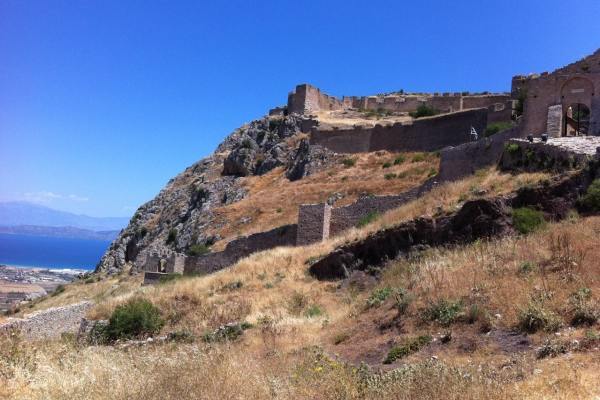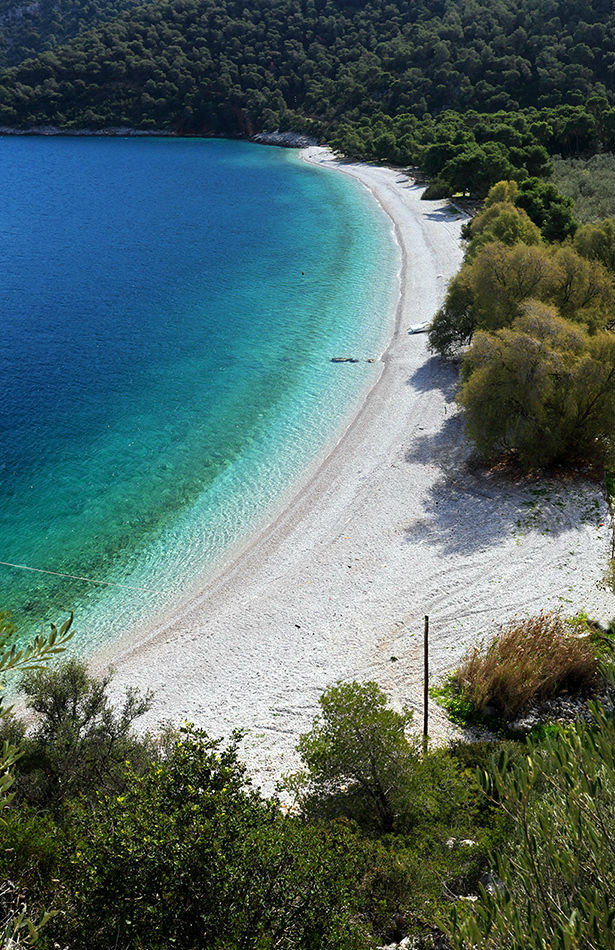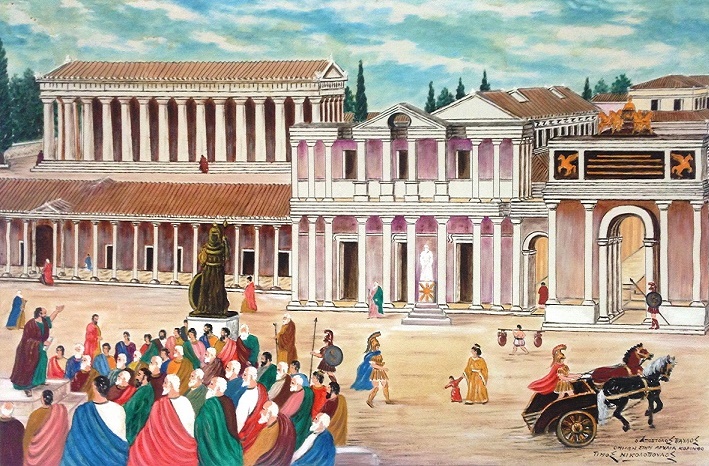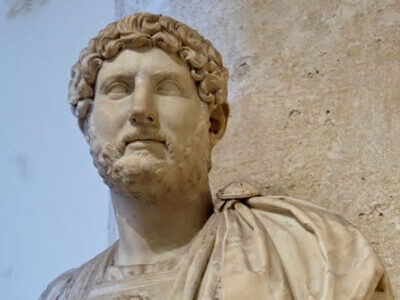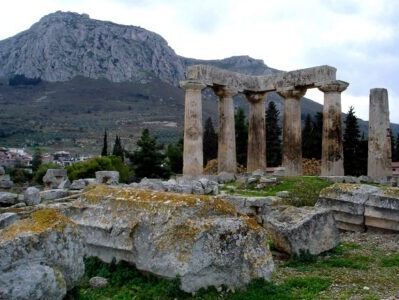
Prehistory
Corinth, a glorious state
Ancient Corinth has been inhabited since the Neolithic years (6500-3250 BC). The city, known since Mycenaean times, is referred to by Homer as “apneios” (= rich) (Iliad B 570), due to its particularly fertile land. The large production of agricultural products, since the early historical times, favored the development of intense commercial activity, mainly to the western Mediterranean, while in the 8th century BC. Corinthian colonies were founded, such as Corfu in the Ionian Sea and Syracuse in Sicily, with an important role and contribution to the history of the ancient Mediterranean world.
The rise
The economic prosperity of the city reached its peak during the 7th and 6th centuries BC, under the rule of the tyrant Kypselos and his son Periander. The power of Corinth was magnificently reflected in beautiful buildings such as the Temple of Apollo (560 BC), while the rise of Isthmia, the games held in the Corinthian Sanctuary of Poseidon and Amphitrite in the Isthmus, in Panhellenic Games (58 BC) further enhanced the city’s reputation and influence.
A profitable custom system
Thanks to its geographical location, Corinth was able to control the passage from Central Greece to the Peloponnese and vice versa. The Isthmus, the narrow strip of land that separated the two seas, brought many difficulties to entrepreneurs to develop trade. The tyrant Periandros thought of building a special road, on which ships would be transported from the Corinthian Gulf to the Saronic Gulf and vice versa across land. The financial interests were huge, so any means would be mobilized to facilitate them. Moreover, the colonies of Italy and Sicily, with which the Corinthian trade had close relations, were already in great prosperity. At the same time, the opening of Diolkos by Periandros and the union of the Corinthian with the Saronic Gulf was a guarantee for the fast and safe transport of Athenian products to the Greek colonies of the West. Of course the Corinthians’ profit from the role of transit was not insignificant. Corinth received high customs duties on goods passing through the Isthmus. Many ships arrived in the ports of Corinth: Phoenician merchants, Carthaginians, various Asians, whole caravans carrying fabrics, ornaments, perfumes and myrrh of the East to this great mall.
The competition
From the end of the 6th century BC, however, the rise of Athens and its dominance in pottery production and Mediterranean trade gradually reduced the influence of the Corinthians, especially after the Persian Wars (490-479 BC). ), where, despite their strong participation, they were forced to accept the supremacy of the Athenians.
In the Peloponnesian War (431-404 BC) Corinth openly sided with Sparta, urging it from the beginning to turn militarily against the Athenians. Despite the defeat of Athens, and despite its involvement in a number of military operations, including the so-called “Corinthian War” against Sparta (395-387 BC), the city of Corinth failed to regain its old strength.
Corinth, a conference Center
The organization of a pan-Hellenic conference in Corinth in 337 BC, by King Philip II of Macedonia, the new emerging power of the Greek world, temporarily brought it back to the forefront, but very quickly surrendered to the Macedonians.
The shaking of the Macedonian yoke in 243 BC. from Aratos to Sikyonios, followed its accession to the Achaean Confederation, a federation of city-states of southern Greece.


